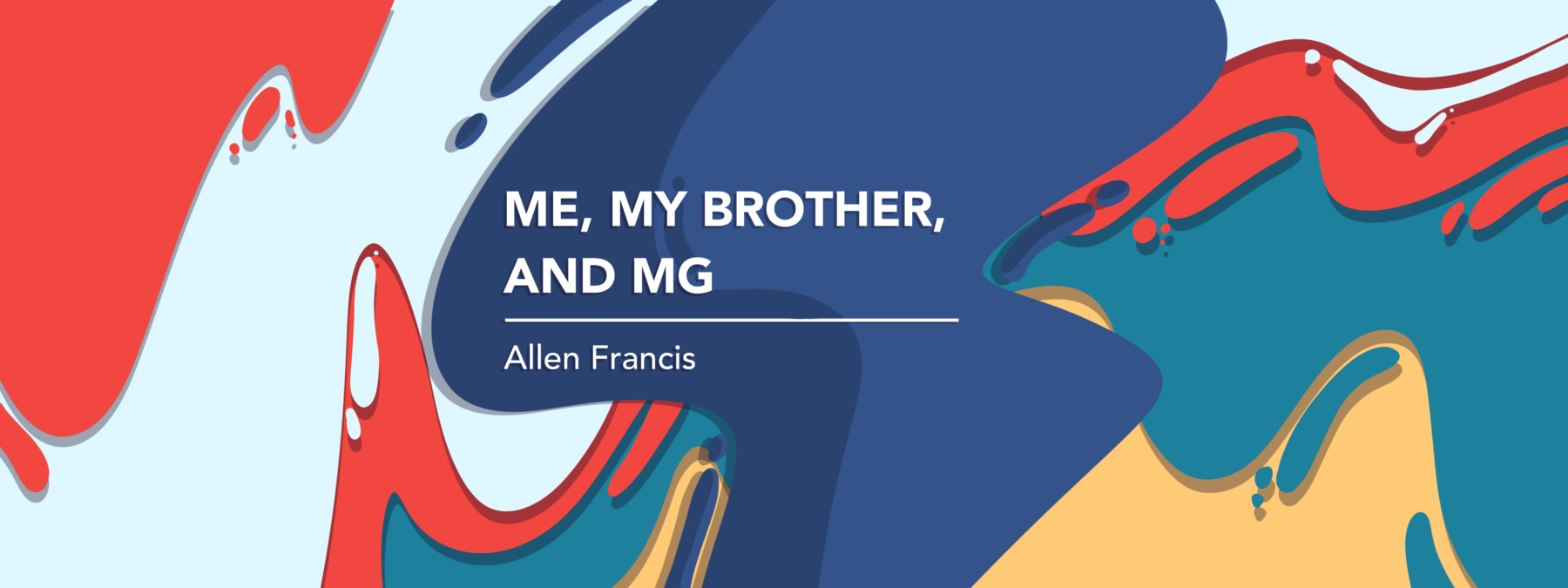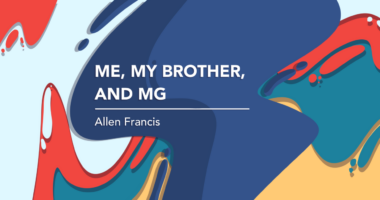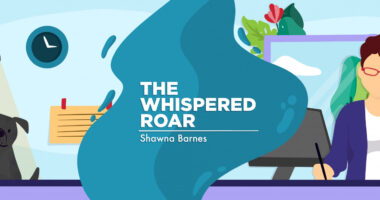My twin faces limited mobility, especially during heat waves
How MG symptoms affect my brother's range of movement

Yoga expert Vanda Scaravelli once said, “Movement is the song of the body.” Every person has a rhythm when they walk, move, or use mannerisms to communicate. Since my twin brother, Aaron, was diagnosed with myasthenia gravis (MG) in 1999 at 24 years old, his rhythms have looked a little different.
I’m still learning about Aaron’s MG because, for many years, we left much unsaid. Aaron dealt with the stares his severe eye misalignment got by including sunglasses in his daily wardrobe. He underwent strabismus surgery to correct the issue last year, which I’m grateful for, but he still has issues with double vision.
As spring gets underway in the U.S., I wanted to know more about how Aaron deals with his MG symptoms in the heat. During our discussion, I learned that MG limits Aaron’s range of movement. Because muscle weakness, drooping eyelids, and consistent fatigue are symptoms of MG, that’s to be expected.
Aaron had a thymectomy procedure after his diagnosis, but now he can’t move certain ways in public for fear of injury or momentary incapacitation.
‘I hate the summer more’
A few weeks ago, I shared that Aaron experiences heat intolerance. “My muscles get so weak,” he said. “It feels like I’ve been working out all day.”
Aaron told me that he always paces himself during New York City summers. He goes out only when he must, and he takes frequent breaks when walking. While running errands, “sometimes I have to stop at a bench and take a rest,” Aaron said.
It’s hard to hear that MG makes life difficult for Aaron. It’s traumatizing for me, but the trauma is actually happening to him. It’s crucial that I listen to him and acknowledge his experiences.
“You mentioned before that breathing becomes an issue for you during heat waves?” I said.
“Yeah,” Aaron said. “Breathing becomes so hard. It’s terrifying at times.”
“Have you discussed it with your doctors? Can they give you anything?” I asked.
“Nothing,” Aaron said.
“What is the worst heat wave-induced muscle weakness incident you’ve experienced?” I asked.
“Once I fell down in the street,” Aaron replied.
“What!” I exclaimed. “Could you get up?”
“No,” Aaron said. “I was with Renee; she had to help me get up.” Renee is one of our older sisters.
Aaron is usually a private man, but I understand why he’s become such a homebody.
“So your mobility has decreased a lot with MG?” I asked.
“Yeah,” Aaron said. “I don’t run.”
“You don’t run at all? Why?”
“Don’t want to fall,” Aaron said.
“Do you fall often?”
“Not as much anymore.”
“Maybe you should get a cane, you know, for added balance?” I said.
“Yeah,” Aaron replied. His one-word answers say a lot. A cane means admitting we’re getting old.
“I’m OK, dude,” Aaron said, sensing my mood. “I walk in the shade as much as I can in the heat. I use the shopping cart for balance.”
“How do you deal with this?” I asked.
“I go to the gym,” Aaron said. “I’ve lost some mobility, but I exercise whenever I can.”
When I was a kid in the 1980s, there was a notorious commercial for a medical services alert product. The commercial featured an elderly woman on the floor screaming, “I’ve fallen and I can’t get up!”
I used to laugh at those commercials so much. It’s easy to take movement for granted in your youth. Now it’s horrifying to imagine Aaron in such a situation.
I told him I’ve fallen flat on my face, too. I’m an expatriate living in Manila, the Philippines, where the street infrastructure is poor. I recently tripped and landed on my face in front of people. I don’t know why I mentioned it to Aaron — perhaps to make light of a situation that isn’t funny. I regret it. After all, I can get up easily.
We transitioned to comic book talk for a while. I mentioned again that maybe he should get a cane to compensate for his poor balance and mobility.
But even with limited mobility, Aaron works out. I take comfort in that, because this conversation bummed me out. After his strabismus surgery, he couldn’t work out for a month, which really bummed him out. Aaron’s short, curt responses to some of my questions told me that his mobility is even more limited than I thought.
Our chat made me realize I take the song of my body for granted. Still, I don’t want to pity Aaron; he takes care of himself. He treasures his workout routine, lives with family, and regularly talks to his doctors. The song of his body may be a remix or a shorter version, but it’s far from over.
Note: Myasthenia Gravis News is strictly a news and information website about the disease. It does not provide medical advice, diagnosis, or treatment. This content is not intended to be a substitute for professional medical advice, diagnosis, or treatment. Always seek the advice of your physician or other qualified health provider with any questions you may have regarding a medical condition. Never disregard professional medical advice or delay in seeking it because of something you have read on this website. The opinions expressed in this column are not those of Myasthenia Gravis News or its parent company, Bionews, and are intended to spark discussion about issues pertaining to myasthenia gravis.








Leave a comment
Fill in the required fields to post. Your email address will not be published.